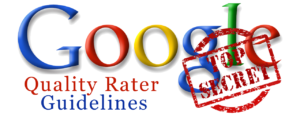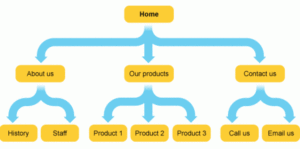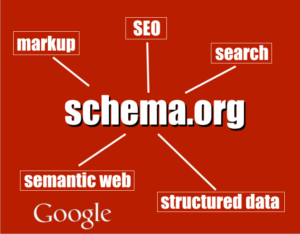Google’s Search Quality Guidelines: Survive Manual Reviews
In the saturated online space, you’ll be shooting yourself in the foot if you build a website that ends up doing poorly in Google’s search rankings. Your business takes up a tiny space on the web and becomes visible only when you make extra effort to get your brand seen by customers. Google will only allow you do this when your website proves its worth by conforming to their web quality guidelines.
Google’s Search Quality Rater’s Guidelines

Every year, Google contracts more than 10,000 search quality raters from around the world to assess its search results. They run actual searches taken from real life searches made by users, rating the quality of the pages that rank highest. Google conducts this experiment to amass data used to upgrade their search algorithms. Meanwhile, you should note that quality raters are unable to directly modify the rankings of the sites they rate. If a rater marks a listing as low quality, it won’t be reflected in the live Google search results, meaning the page won’t lose rankings or get banned. While quality rater data may affect low-quality pages over time, the algorithm will affect pages that weren’t reviewed.
Quality raters are given a guideline to inform them on what criteria to consider when evaluating the quality of a website. While looking into this guideline won’t give you a magic formula to ranking number 1 in search, you’ll be enlightened about what Google’s ranking algorithm considers a high quality site and a low quality one. The guideline explains exactly what kind of pages they want to rank highest and what Google believes searchers hope to find. The 160 page document is not precisely related to the search engine’s algorithm but it does highlight what kind of pages Google wants to rank highest.
What makes a site compliant with Google’s Search Quality Guidelines?
In this article, we have summarised Google’s indicators for determining the authenticity of a site.
Branding & page design

Like in the physical world, your corporate logo design and brand aesthetics speak volumes about who you are, and can be very useful in increasing conversion rates, or could ruin your online presence. With a solid logo that is easily recognised, you could attract new, paying customers to your brand. A memorable logo will remain etched in your customers’ minds and they’ll be more likely to choose your brand over others if they remember it. Google likes sites sporting professionally designed logos, neat typography, and harmonised colour schemes. Note that beyond attractive visuals, user experience is a no-brainer. It’s all about creating the perfect first impressions and keeping your users engaged.
E-A-T (Expertise, Authority, Trustworthiness)
Google favours sites loaded with original content that is both authoritative and trustworthy. For your content to be considered authoritative, it has to be in line with the expertise of the author or owner, especially with highly specialised or delicate subject areas such as medical or financial advice. You don’t need to have degrees or advanced education in a subject area to be an authority, you could include detailed reviews and share life experience to attain expertise, or have expert contributors create content for your site.
Reputation
Google asks its web quality raters to actively search for brand signals indicated in various third party profiles. While the major social networks such as Facebook, Twitter, YouTube, and Instagram are crucial, other references to your company are important, whether it’s reviews, forums, or Wikipedia. If you deal with formal topics like health and nutrition, or finance and investment, you should ensure your online reputation is listed in places that can be easily discovered. If you don’t publish content on formal topics such as these, Google will consider user engagement, reviews, and popularity within your niche market to gauge your reputation.
Information about the website
If your site does not include the standard pages such as “about”, “contact” or “customer service”, you could be hurting your ratings, depending on the kind of site you run. While these pages may be omitted by certain websites, they form an important basis for many sites and should not be overlooked.

Legal information
For an EU site, you’ll need to have a cookie compliance disclaimer, and for limited companies in the UK, the company house number and registered business address displayed on your website must be aligned with your company house records. You’ll have to include information such as Delivery Information, Privacy Policy, Terms of Services, and Returns Policy.
Contact information
The absence of contact information from a site could be an indicator that it’s not authentic. If you’re particularly interested in ranking locally, you must include a postal address, email address, and phone number on your site. It doesn’t end here; your Google business page and any third party sites should mirror this information.
High quality media
Your pages will rank higher if they are generously sprinkled with high quality images, videos and engaging infographics. You’ll be able to tell more engaging stories and keep visitors on your page for a longer time.
Frequently updated blog and social media channels
The logic behind this is simple – if you’re real, you’ll have active social media accounts and a regularly updated blog. In addition to getting higher referral traffic and brand signals, there’ll be more keywords customers can use to find you through organic search. The more active you are, the more likely it is that you’ll be ranked higher.
Authorship
Google stopped authorship a few years ago but it seems to be coming back, bigger than ever. Sites considered as high quality will have author profiles for their posts and pages, linked to personal social profiles and marked up with schema and structured data.

Integrations
Your site may be considered low quality if it is not connected to Google Webmaster Tools, Google Business, or Google Analytics. Your site will perform better if it’s measured by Google Analytics and is proven be high performing.
Outbound Links
Google uses your outbound links to build context for your site. If yours is an authentic website, it should link to other authentic sites. Whether you use authority sources, suppliers, or associated brands, you should regularly link to authority sites containing related information. At first, this may seem counterproductive, but Google wants sites that are part of a larger network to rank higher. An authentic site should be connected to and allow visitors reach other related, relevant sources.

HTML5 Schema
With the rapid growth of the semantic web, schema is becoming increasingly important for search engines. Using structured data enables Google to effectively evaluate the context of your website around specific topics. Currently, only a small fraction of sites use schema, putting them well ahead of all other websites.
Conclusion
While every site is different and will require unique solutions, these criteria are definitely the standard if you have a reputable developer build your site. The bottom line is Google cares about the quality of the pages that are exposed to users. Your quality ratings don’t necessarily mean you’ll rank higher or lower, but impressing Google as regards quality means yours is the kind of content Google would like to place higher in search results.











